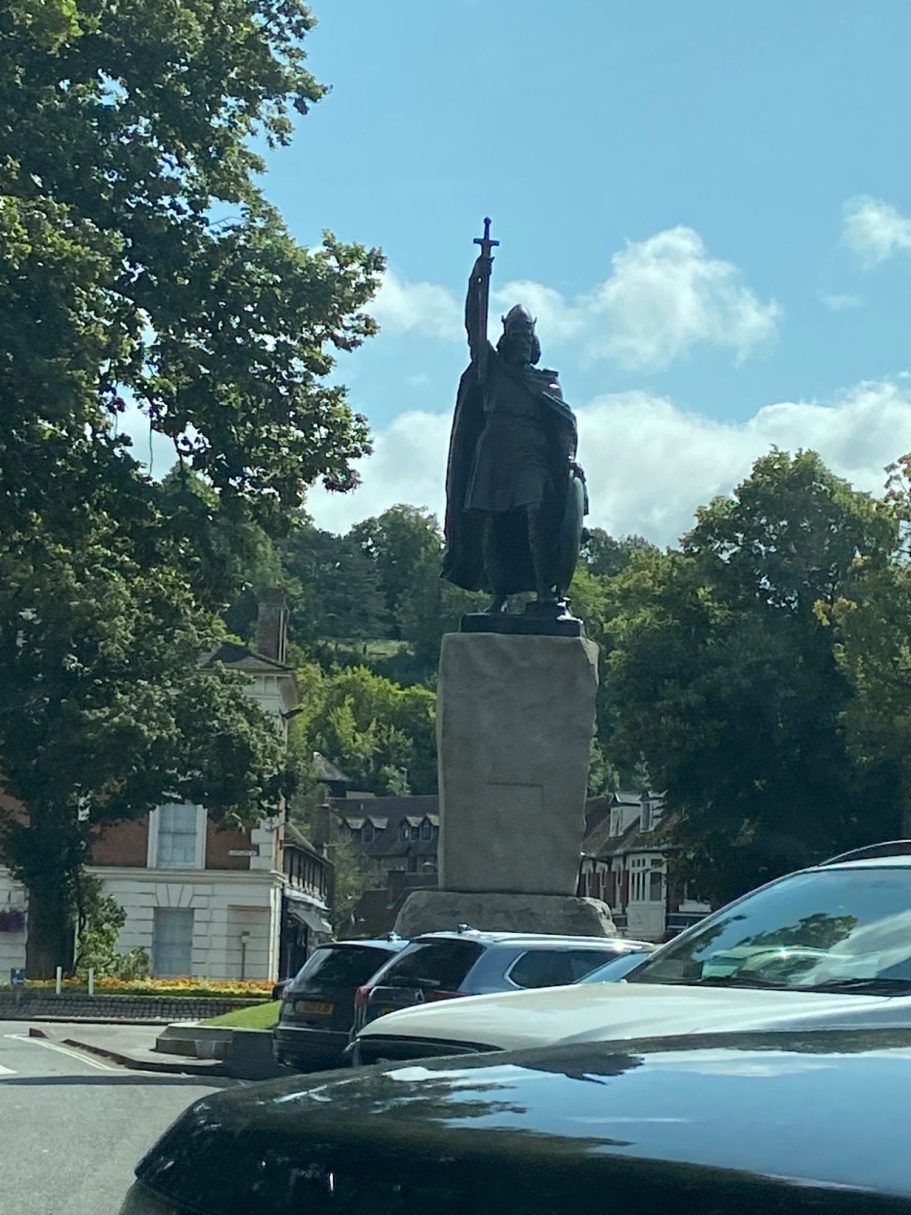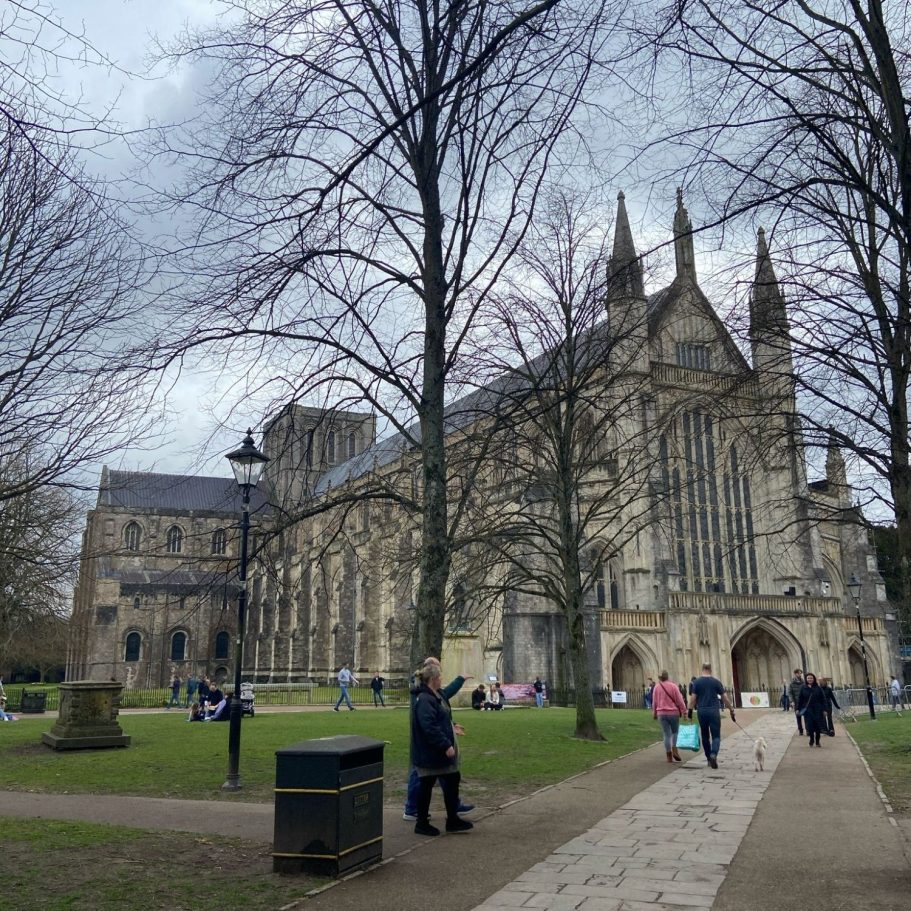Updated April 2025
Reflections on the CMT Symposium 2025: The Defining Moment
A Defining Moment in My Doctoral Journey
Attending the Culture-Media-Text (CMT) annual symposium for the second consecutive year at the University of Winchester has been, once again, a defining moment in my journey as a PhD student. I immersed myself in an intellectual and emotional journey that resonated deeply with my academic and personal reflections. This symposium, curated with care and intellectual rigour by our convenors, Professor Laura Hubner and Dr Daniel Varndell, offered much more than an academic event—it was a profound, evocative, and transformative experience.
Though I regrettably missed Dr Hubner’s opening welcome. The moment I stepped into the venue, I was enveloped by an environment that smelled of knowledge. The air was thick with curiosity, humility, and an eagerness to exchange ideas. It was a space where academics, scholars, and postgraduate students gathered—not only to share knowledge but to collectively inhabit a space of respectful listening and critical reflection. I thought to myself: this is what a symposium should feel like. It smelled like… symposium.
Gary Farnell opened with a presentation titled "Defining Moments in Theory", which anchored the day with a homage to Fredric Jameson, the influential American literary critic, philosopher, and Marxist theorist, who died in September 2024. Terms such as capitalist production and unemployment were brought vividly to life through Gary’s interpretation of Karl Marx’s Capital and the film Hustlers (2019), starring Jennifer Lopez. His exploration of Hustlers (2019) as a cinematic allegory for capitalist exploitation was particularly striking. By framing the film’s narrative, where marginalised strippers retaliate against Wall Street financiers, as a distorted form of proletarian rebellion, Gary illuminated how capitalism forces individuals into morally ambiguous survival strategies, reflecting broader systemic injustices. The connection between the strippers as the new proletariat—marginalised workers revolting against exploitative financiers—resonated deeply. His talk made me consider the psychological and societal impacts of economic structures on individuals, especially the unemployed and reminded me how theory can be a lens through which to understand both art and human suffering.
Following Gary was Matthew Leggatt, whose presentation “Our Slow Decline” delivered a haunting, poetic meditation on dystopia. Drawing on Yoko Ogawa’s The Memory Police, Matthew transformed the room into a shared dreamscape—one where forgetting was as violent as remembering. His words brought me back to when I first encountered Kafka’s Metamorphosis at nine years old, yearning to escape my skin and become something lighter. Matthew’s voice has a way of holding space—an eerie, tender suspension of time where melancholia becomes a shared experience. His ability to make theoretical dystopia feel viscerally real—to let us live inside it—was nothing short of alchemical. As he spoke, I found myself reflecting on the invisible erasures we endure daily, both personal and collective, and the ways literature serves as both a mirror and a refuge. At that moment, I felt both seen and unburdened.
The journey continued with Abby Whittall, whose presentation “The GIF as a Moment of Action” was both intellectual and deeply personal. I first met Abby at last year’s symposium, and since then, I’ve admired her as a scholar whose passion and presence radiate through her work. Her exploration of the GIF as a looping moment—always active, never-ending—paralleled the resonance of her words. She reminded us that scholarship isn’t only about critique but about awakening. Her intellect moves like poetry, leaving behind a trace that lingers and transforms.
The second panel, introduced by Dr. Daniel Varndell, was a testament to the symposium’s interdisciplinary richness. Elizabeth Munro’s “To Saracenise Oneself: Representations of Islam in the English Charlemagne Romance Cycle” examined the representation of Islam in medieval English literature, revealing medieval anxieties about cultural differences that still resonate today. Katy Soar’s "Archaeological Horror and Non-Euclidean Chronologies" unravelled how ancient fears persist and mutate across time. James Williamson’s “Revisiting ‘Archetype as History in the Hollywood Science Fiction of the 1950s: The Apocalypse in The Day the Earth Stood Still and the War of the Worlds” led us into alien encounters as ruptures in human chronology. James’ presentation stayed with me long after the panel ended. His work embodies a rare fusion of scholarly precision and profound humanity—a reminder that the best criticism does not merely dissect texts but listens to them, uncovering the truths we hide even from ourselves. His humility and quiet brilliance remind me why I chose to pursue a doctorate—to not just analyse but to understand, to feel, to respond. His writing, marked by compassion and integrity, is the kind of scholarship that lingers long after the applause has faded.
The afternoon sessions deepened the symposium’s engagement with trauma and recovery. Eleanor Marsden, a first-year PhD student, presented "Suspending Sentences: Traumatic Experience and the Journey Back to Language”. Her project on lived experience, trauma, EMDR therapy, and creative writing seems powerful. Her work, still in its early stages, promises to bridge clinical and artistic approaches to trauma—a fusion that excites me as someone with a background in mental health nursing. Christina Wilkins’ subsequent talk, "Visualising Trauma and the Therapeutic Journey: Russian Doll”. Her talk unpacked how cyclical trauma manifests through the protagonist of the Russian Doll series, repeated reliving of the same night. Her presentation masterfully linked narrative structure with psychological processes like repetition compulsion and self-confrontation. Christina reminded me that trauma must be confronted, not bypassed—a message that deeply resonates with my research in mental health.
The final panel brought us full circle to questions of time and memory. Lewis Jones’ "Three Tempos for a City: Guattari’s Ecological Cinema" made me consider urban life through a philosophical lens. It brought me full circle to Gary Farnell’s early discussion on capitalism, echoing the idea that cities—and their cinematic representations—can resist or reinforce dominant temporalities.
Ian Roberts, whom I had the pleasure of meeting last year, returned with a talk on “Manufacturing Time for Cultural Reflection”. His involvement with the Winchester Film Festival and the Whispers from Iran film screening reflected a commitment not only to academia but also to social and cultural engagement. Ian’s humility and genuine care are palpable—his work is not just academic; it is deeply human. Empathetic scholarship that CMT champions.
The symposium closed with Imruh Bakari’s electrifying keynote, "Reconstructing the Archival Moment/Exploring the Living Archive”. Imruh’s talk was both intellectually rich and emotionally stirring. Through the lens of the British Empire Exhibition and Blitz film, Imruh wove a narrative of colonial resistance, migrant resilience, and the reclaiming of voice. His presentation was more than academic; it embodied history, a reminder that archives are not static but living, breathing testaments to survival. Listening to Imruh, I felt memory, identity, and defiance intertwine. It reminded me of my own family’s migrations, of silences, of resilience, and the power of storytelling as survival.
The defining moments of this symposium—Marxist critiques, dystopian meditations, traumatic reckonings, and archival resurrections—have left me not only with new ideas but with a renewed conviction: that the work we do here matters, because it helps us understand, survive, and ultimately reimagine the worlds we inhabit. This year’s symposium was a convergence, a space where disparate threads of thought intertwined to form a tapestry of intellectual and emotional resonance. Each speaker, in their own way, spoke to preservation, survival, resilience, and hope. It was a reminder that our stories—personal, academic, communal—are still unfolding.

About the CMT
The CMT Research Centre is more than an interdisciplinary hub. It is a fireplace, where scholars, students, and friends gather to exchange warmth in the form of words, ideas, and dreams. It is a home, lovingly curated by Professor Laura Hubner and Dr Daniel Varndell, surrounded by kindred spirits. Last year, curiosity brought me to my first symposium. I left inspired, I felt an immediate sense of belonging, and this year, that bond deepened.
CMT gave me a platform to present, to learn, and to grow. It helped me explore diversity, not as an abstract value, but as a lived, celebrated reality—reflected in voices, fields, styles, and silences. CMT has become the grown-up iteration of these formative years, a space where intellectual rigour meets creative daring, where interdisciplinary dialogues feel less like academic exercises and more like collective acts of meaning-making.
Evoking
Attending the CMT series always evokes a profound sense of homecoming—one that unexpectedly transports me back to my teenage years, when I would eagerly participate in a local community group called Eutopía, a vibrant collective of writers, poets, and street performers. Those gatherings were more than just meetings; they were incubators of possibility, where I dreamed futures for myself—as a writer, a poet, a teacher, a nurse, a doctor. Perhaps that’s when my own Kafkaesque metamorphosis began—leading me here, to this moment. This defining moment, where the creative ferment of those days, the way ideas and identities collided and coalesced, feels strikingly mirrored in the intellectual energy of CMT.
And yet, in the warmth of CMT’s community, under the guidance of scholars like Laura Hubner and Daniel Varndell, without hesitation, I am still questioning, still reaching, still believing in the transformative power of ideas.
And we haven’t finished writing the story yet.
For more information, refer to:
Culture-Media-Text (CMT) https://www.winchester.ac.uk/research/Our-impactful-research/Culture-Media-Text-Research-Centre/
Convenors
Presenters:
Bakari, Imruh
Gary Farnell
Abby Whittall
Elizabeth Munro
Katy Soar
James Williamson
Christina Wilkins
Lewis Jones
Ian Roberts
Eleanor Marsden
Matthew Leggatt

©Copyright. All rights reserved.
We need your consent to load the translations
We use a third-party service to translate the website content that may collect data about your activity. Please review the details in the privacy policy and accept the service to view the translations.